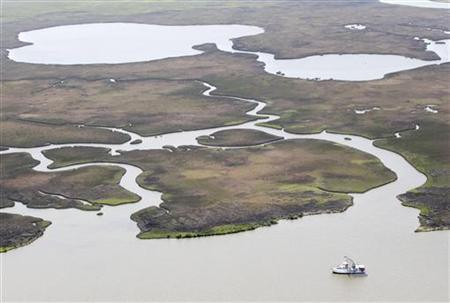BP oil spill: Study traces almost 10 million gallons to Gulf sea floor

The mystery of the missing gallons of oil after the BP oil spill in 2010 has been solved by scientists who have traced the oil to the sea floor in the Gulf of Mexico.
A study led by Florida State University Professor of Oceanography Jeff Chanton has found around 6 million to 10 million gallons buried in the sediment on the Gulf floor, about 62 miles southeast of the Mississippi Delta.
In the long-term, this spells trouble as the low oxygen levels on the sea floor mean the oil will not be decomposed by bacteria.
"This is going to affect the Gulf for years to come," Chanton said. "Fish will likely ingest contaminants because worms ingest the sediment, and fish eat the worms. It's a conduit for contamination into the food web."
Using carbon 14, a radioactive isotope, as a tracer the team mapped the oil sediment distribution on the sea floor. Oil does not have carbon 14, so sediment that contained oil would immediately stand out.
The article was published in the latest edition of the journal Environmental Science & Technology.
The work was funded by the Gulf of Mexico Research Institute created to allocate the money made available to support scientific research by BP.
The biggest oil spill in US history saw 200 million gallons of crude oil spilled into the Gulf of Mexico in April 2010 for 87 days with the government and BP cleanup crews having trouble locating all of it.
The oil rig explosion killed 11 and injured 17.
While the gushing well was capped in July 2010, oil is still said to be washing up on shores around the region.
More than 8,000 birds, sea turtles, and marine mammals were found injured or dead in the six months after the spill.
In the US especially, oil spills from leaking pipelines have become frequent with at least 73 pipeline-related accidents recorded in 2014.
The latest was when up to 50,000 gallons (1200 barrels) of crude spilled into Montana's Yellowstone River early this year, polluting some drinking water. The Keystone XL pipeline project that plans to move up to 830,000 barrels of Canadian crude oil a day passes close to this region and is being opposed by environmentalists.
© Copyright IBTimes 2025. All rights reserved.





















